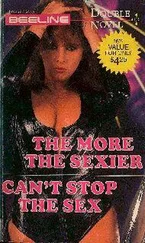Curry is a Harvard Business School grad and, with his wife, Celerie Kemble, a Palm Beach–born designer, a prominent fixture on New York political and social scenes. Which is to say that he would seem to be a card-carrying member of what he calls the “go-go aggressive” crowd, and an unlikely advocate for the importance of introverts. But one thing he’s not shy about is his thesis that it was forceful extroverts who caused the global financial crash.
“People with certain personality types got control of capital and institutions and power,” Curry told me. “And people who are congenitally more cautious and introverted and statistical in their thinking became discredited and pushed aside.”
Vincent Kaminski, a Rice University business school professor who once served as managing director of research for Enron, the company that famously filed for bankruptcy in 2001 as a result of reckless business practices, told the Washington Post a similar story of a business culture in which aggressive risk-takers enjoyed too high a status relative to cautious introverts. Kaminski, a soft-spoken and careful man, was one of the few heroes of the Enron scandal. He repeatedly tried to sound the alarm with senior management that the company had entered into business deals risky enough to threaten its survival. When the top brass wouldn’t listen, he refused to sign off on these dangerous transactions and ordered his team not to work on them. The company stripped him of his power to review company-wide deals.
“There have been some complaints, Vince, that you’re not helping people to do transactions,” the president of Enron told him, according to Conspiracy of Fools , a book about the Enron scandal. “Instead, you’re spending all your time acting like cops. We don’t need cops, Vince.”
But they did need them, and still do. When the credit crisis threatened the viability of some of Wall Street’s biggest banks in 2007, Kaminski saw the same thing happening all over again. “Let’s just say that all the demons of Enron have not been exorcised,” he told the Post in November of that year. The problem, he explained, was not only that many had failed to understand the risks the banks were taking. It was also that those who did understand were consistently ignored—in part because they had the wrong personality style: “Many times I have been sitting across the table from an energy trader and I would say, ‘Your portfolio will implode if this specific situation happens.’ And the trader would start yelling at me and telling me I’m an idiot, that such a situation would never happen. The problem is that, on one side, you have a rainmaker who is making lots of money for the company and is treated like a superstar, and on the other side you have an introverted nerd. So who do you think wins?”
* * *
But what exactly is the mechanism by which buzz clouds good judgment? How did Janice Dorn’s client, Alan, dismiss the danger signs screaming that he might lose 70 percent of his life savings? What prompts some people to act as if FUD doesn’t exist?
One answer comes from an intriguing line of research conducted by the University of Wisconsin psychologist Joseph Newman. Imagine that you’ve been invited to Newman’s lab to participate in one of his studies. You’re there to play a game: the more points you get, the more money you win. Twelve different numbers flash across a computer screen, one at a time, in no particular order. You’re given a button, as if you were a game-show contestant, which you can press or not as each number appears. If you press the button for a “good” number, you win points; if you press for a “bad” number, you lose points; and if you don’t press at all, nothing happens. Through trial and error you learn that four is a nice number and nine is not. So the next time the number nine flashes across your screen, you know not to press that button.
Except that sometimes people press the button for the bad numbers, even when they should know better. Extroverts, especially highly impulsive extroverts, are more likely than introverts to make this mistake. Why? Well, in the words of psychologists John Brebner and Chris Cooper, who have shown that extroverts think less and act faster on such tasks: introverts are “geared to inspect” and extroverts “geared to respond.”
But the more interesting aspect of this puzzling behavior is not what the extroverts do before they’ve hit the wrong button, but what they do after . When introverts hit the number nine button and find they’ve lost a point, they slow down before moving on to the next number, as if to reflect on what went wrong. But extroverts not only fail to slow down, they actually speed up .
This seems strange; why would anyone do this? Newman explains that it makes perfect sense. If you focus on achieving your goals, as reward-sensitive extroverts do, you don’t want anything to get in your way—neither naysayers nor the number nine. You speed up in an attempt to knock these roadblocks down.
Yet this is a crucially important misstep, because the longer you pause to process surprising or negative feedback, the more likely you are to learn from it. If you force extroverts to pause, says Newman, they’ll do just as well as introverts at the numbers game. But, left to their own devices, they don’t stop. And so they don’t learn to avoid the trouble staring them in the face. Newman says that this is exactly what might happen to extroverts like Ted Turner when bidding for a company on auction. “When a person bids up too high,” he told me, “that’s because they didn’t inhibit a response they should have inhibited. They didn’t consider information that should have been weighing on their decision.”
Introverts, in contrast, are constitutionally programmed to downplay reward—to kill their buzz, you might say—and scan for problems. “As soon they get excited,” says Newman, “they’ll put the brakes on and think about peripheral issues that may be more important. Introverts seem to be specifically wired or trained so when they catch themselves getting excited and focused on a goal, their vigilance increases.”
Introverts also tend to compare new information with their expectations, he says. They ask themselves, “Is this what I thought would happen? Is it how it should be?” And when the situation falls short of expectations, they form associations between the moment of disappointment (losing points) and whatever was going on in their environment at the time of the disappointment (hitting the number nine.) These associations let them make accurate predictions about how to react to warning signals in the future.
* * *
Introverts’ disinclination to charge ahead is not only a hedge against risk; it also pays off on intellectual tasks. Here are some of the things we know about the relative performance of introverts and extroverts at complex problem-solving. Extroverts get better grades than introverts during elementary school, but introverts outperform extroverts in high school and college. At the university level, introversion predicts academic performance better than cognitive ability. One study tested 141 college students’ knowledge of twenty different subjects, from art to astronomy to statistics, and found that introverts knew more than the extroverts about every single one of them. Introverts receive disproportionate numbers of graduate degrees, National Merit Scholarship finalist positions, and Phi Beta Kappa keys. They outperform extroverts on the Watson-Glaser Critical Thinking Appraisal test, an assessment of critical thinking widely used by businesses for hiring and promotion. They’ve been shown to excel at something psychologists call “insightful problem solving.”
Читать дальше
![Сьюзан Кейн Quiet [The Power of Introverts in a World That Can't Stop Talking] обложка книги](/books/33084/syuzan-kejn-quiet-the-power-of-introverts-in-a-wo-cover.webp)











